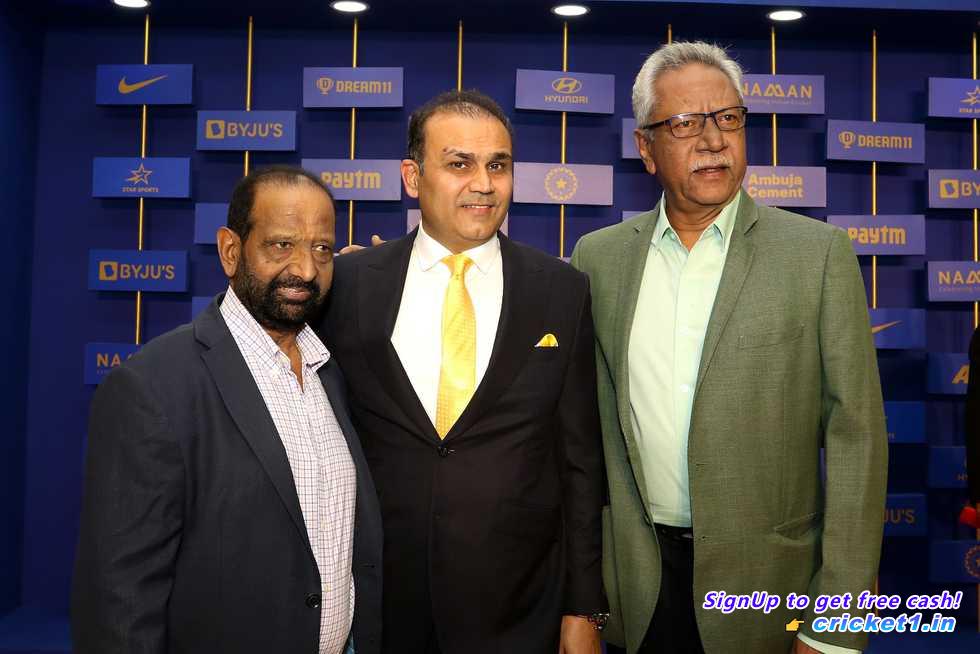
What began as a partnership in the batting crease transformed over the years into a friendship that has stood the test of time. Gundappa Viswanath and Anshuman Gaekwad were not merely long-time teammates for India; their bond extended well beyond the confines of the cricket field.
“I just returned from Aunshu’s house, and I still can’t come to terms with the fact that I’ll never see him again. To visit his home in his absence was something I never imagined I would face,” Viswanath said, his voice heavy with grief during a phone call from Vadodara. The depth of his emotions highlighted the special connection he had with Gaekwad, who passed away recently.
Viswanath vividly recalls the first time Gaekwad stepped onto the field for a Test match, which was against the West Indies at Eden Gardens on New Year’s Day in 1975. “There was blood on the pitch,” says Viswanath, recounting the harrowing scene. “MAK ‘Tiger’ Pataudi had been struck on the face by Andy Roberts, who was leading a ferocious pace attack. The sight of blood was unmistakable, yet Gaekwad stood unflinching as he took guard.”
At just 21 years old, Gaekwad faced a hostile bowling attack that included Bernard Julien and Vanburn Holder. “Aunshu must have been tense and nervous, but he did not show it. From the moment he settled into his stance, it was evident that his wicket would have to be earned. That was the hallmark of his career,” Viswanath fondly recounted.
The duo added a crucial 75 runs for the fifth wicket in that match, paving the way for India’s eventual victory by 85 runs. Viswanath’s second-innings 139 was a knock he would later cite as one of his finest, while Gaekwad, though out twice to spin—unusual in a match against the West Indies—had already shown his resilience.
“Everyone always spoke of how gallant and gritty he was with the bat,” Viswanath said, reflecting on Gaekwad’s legacy. “There was Sunil [Gavaskar], of course, but Aunshu was a different kind of player. He was immovable and unyielding, a true testament to courage.”
This courage was on full display during the infamous ‘Bloodbath of Kingston’ in 1976. Following India’s record-breaking 406 for 4 victory at Port of Spain, the West Indies were out for vengeance. “Michael Holding led their arsenal, and they bowled numerous bouncers and beamers,” Viswanath recalled.
Amid this barrage, Gaekwad stood like a fortress for over seven and a half hours, taking blows all over his body but refusing to yield. “He was hit on his fingers and ribcage, but it was a particularly vicious lifter from Holding that struck his left ear which finally forced him to retire hurt. However, that unbeaten 81 was worth more than a century in my eyes.
. It’s the bravest innings I have seen,” said Viswanath.
Though cricket brought them together, the bond between ‘Vishy’ and ‘Aunshu’ transcended the game. “We were more than just teammates; we were brothers,” said Viswanath, choking up. “Anshuman was an absolute gentleman, always gracious, an excellent host, and a great listener with an impeccable sense of humor. Our families grew close too, especially our wives Jyoti and Kavita. Kavita has never been this affected by a loss; she considered Aunshu her older brother.”
Their last interaction was a brief one during the annual BCCI awards function in January in Hyderabad. “Aunshu mentioned feeling tired and wanted to rest. We planned to meet the following morning, but fate had different plans. His sudden passing has left a void that I am yet to come to terms with,” lamented Viswanath.
In the wake of Gaekwad’s passing, messages of condolences and tributes poured in from around the globe. Notably, even from bowlers who had faced his stoic determination. “Mikey [Holding] and others have all shared touching words about Aunshu,” Viswanath said with pride. “Their tributes are a testament to the impact he had, not just as a cricketer but as a human being. He was warm, generous, and perpetually positive—qualities that were evident both on and off the field.”
Gundappa Viswanath feels privileged to have known Gaekwad so closely. “Aunshu met adversity with a smile and was grateful for the life he had. His aristocratic background meant he fit seamlessly into any setting, whether with royalty or the everyday man. He was born for cricket and life, always humble and forever a gentleman.”
“As I bid farewell to my friend, I find solace in knowing that our families and our friendship will always endure. Rest well, my friend. You’re gone, but the bond we share will never fade,” concluded Viswanath, echoing the sentiments of countless hearts Gaekwad had touched.
This enduring relationship between Viswanath and Gaekwad stands as a testament to the lasting friendships that sport can forge, ones that go far beyond the boundaries of the playing field.

